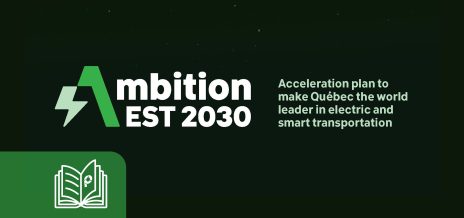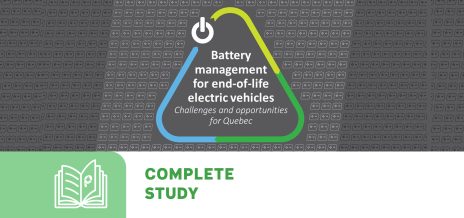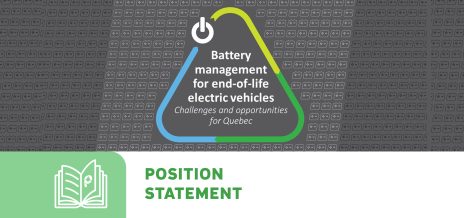The Major Potential of Quebec’s Mines
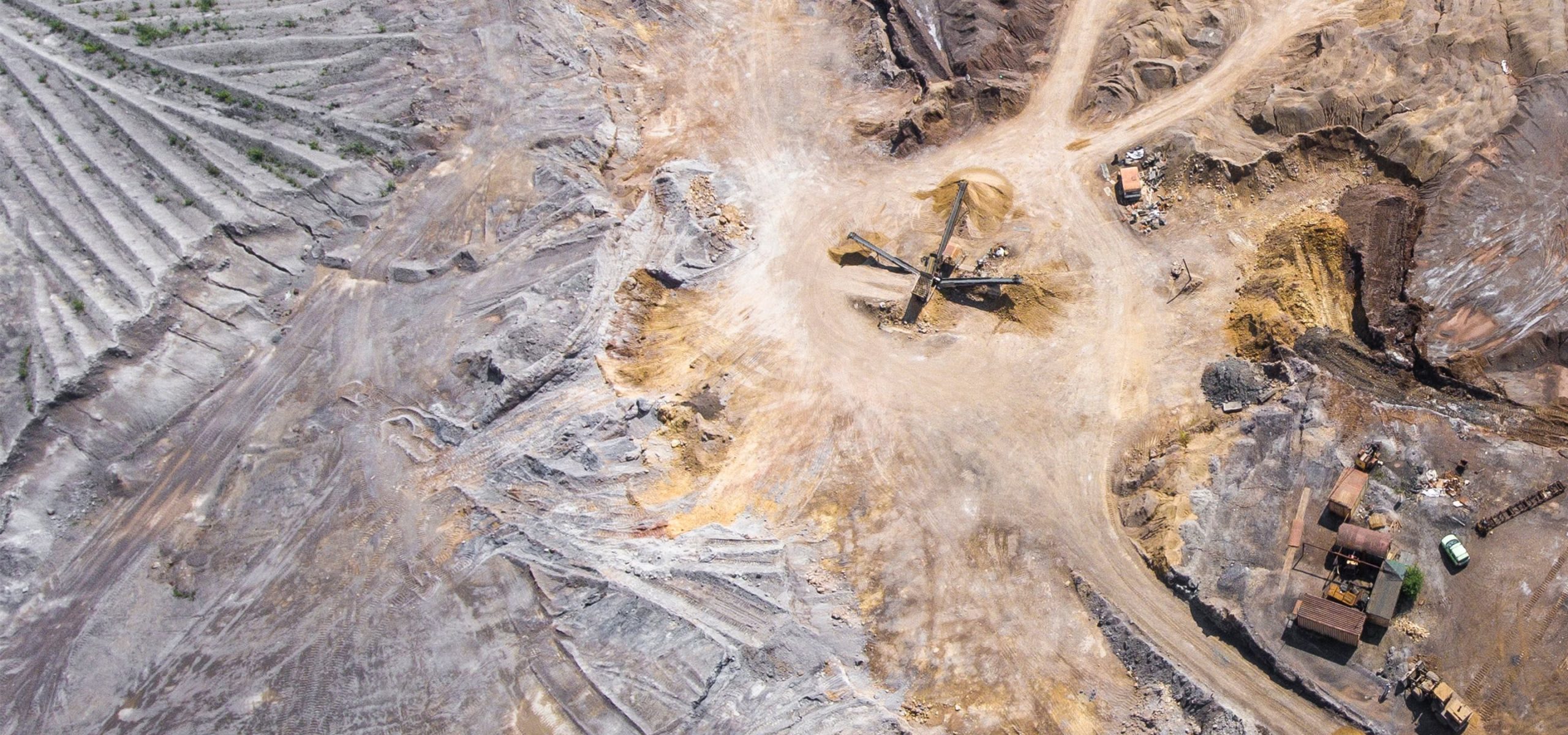
With its vast mineral resources, Quebec stands to benefit from the revolution currently rocking the world of transport.
Electric vehicle sales, for example, are skyrocketing the world over. This presents major opportunities for Quebec, since the province has both the natural resources and the expertise to meet the growing needs of the electric vehicle industry.
According to the International Energy Agency, there will be 120 million electric vehicles on the road by 2030. Global sales rose from 700,000 vehicles in 2016 to approximately one million vehicles in 2017, for a total of three million electric vehicles on the road worldwide[1].
Quebec’s mining sector produces many of the metals and minerals used in batteries, including nickel, copper, zinc, graphite, and lithium. Steel and aluminum, used in many automotive components, are both staple products of Quebec’s mining sector. The province has nine aluminum smelters and the industry already employs over 30,000 people[2].
Of all Quebec’s resources, lithium has the greatest economic potential. The price of lithium rose from $7,000 per ton in 2015 to $20,000 per ton in 2017[3]—an increase of over 285%. Since lithium is an essential battery component, demand will no doubt continue to rise significantly in the coming years.
Quebec’s white gold
Quebec is home to the world’s third‑largest lithium deposit, which is being mined by Nemaska Lithium and is located 300 km north of Chibougamau. The Quebec company is also about to open the province’s first lithium processing plant, in Shawinigan, and is on the verge of patenting a highly promising technology for converting the spodumene extracted from Nemaska’s Whabouchi property into 99.9997% pure lithium hydroxide, a product for which there is strong global demand.
The company’s innovative technology uses electrolysis to separate lithium from other metals and impurities. Powered by hydroelectricity, the method is one of the cleanest around and cuts greenhouse gas emissions by 98% compared to traditional lithium extraction methods, which rely on astronomical quantities of chemicals.
“Not only is the process revolutionary from an environmental standpoint, it also cuts our transport costs by a factor of seven,” says Simon Thibault, Nemaska Lithium’s director of social and environmental responsibility. “Since the spodumene is both mined and converted into lithium hydroxide in Quebec, the ore can be transported by truck or by train. In Australia, it’s a different story. The ore has to be transported to China before it’s converted into lithium.” The Quebec company thus expects to be supplying 30–35% of the world’s lithium hydroxide by 2020 and generating $20 billion in revenue in the next 30 years.
Currently, 90% of the world’s lithium is produced by four companies, which are headquartered mainly in Australia and Chile. Canada currently produces less than 0.5% of the lithium, 2.5% of the graphite, and 3.9% of the cobalt sold worldwide.[4]
We’re almost there
In addition to its mining potential, Quebec has the knowledge and resources to compete effectively on the global market. Just this past March, the province saw the creation of the Hydro‑Québec Center of Excellence in Transportation Electrification and Energy Storage. The Center of Excellence will commercialize Hydro-Québec technologies that are currently protected by some 800 patent applications—the result of over 20 years of research and development. Hydro-Québec is known worldwide for its technological expertise and intellectual property portfolio, particularly in lithium‑ion, lithium‑sulfur, and lithium‑air batteries. To take just one example, the vast majority of cellphones produced in the world today contain a component based on technology patented by Hydro-Québec. The Center of Excellence will thus play a major role in promoting Quebec’s expertise in the various industries tied to electric vehicles and plug‑in hybrid vehicles (PHEVs)[5].
Quebec’s mining potential is a fact. Thanks to strong global demand, exploiting the Whabouchi lithium deposit will certainly have a highly positive impact on the province’s mining industry. That means we’re in an excellent position to attract global attention—as long as we can keep up the momentum!
[1] Global EV Outlook 2017, International Energy Agency.
[2] Ministère de l’Économie et de l’Innovation du Québec, “S’informer / Aluminium,” Government of Quebec, November 2018.
[3] EnergyTrend, 2018.
[4] “Les véhicules électriques, faut-il croire la rumeur?” Joëlle Noreau (Desjardins, April 2018).
[5] “Center of Excellence in Transportation Electrification and Energy Storage,” Hydro-Québec, October 2018, https://www.hydroquebec.com/ce-transportation-electrification-energy-storage/
Continue reading on this subject
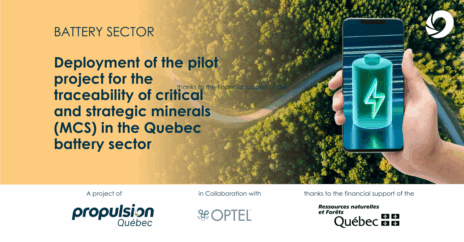
Critical and strategic minerals (CSM) traceability pilot project for the Quebec battery sector
PILOT PROJECT FOR QUEBEC’S BATTERY INDUSTRY A number of measures, regulations and laws are currently being put in place in certain countries to secure the local supply chain, or that of allied countries, in Critical and Strategic Minerals (CSM). Europe, for example, has announced the introduction of a Battery Passport from 2027, to track the […]
Read more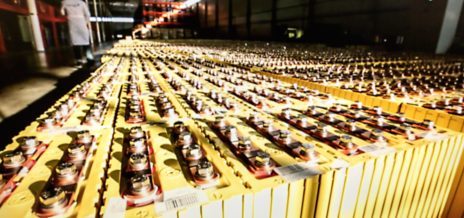
LITHIUM-ION BATTERIES : Local and international impact is on the horizon !
The lithium-ion battery sector is a key player in the future of electric and smart transportation in Quebec. Increasing announcements are highlighting the economic and environmental implications both locally and internationally.
Read more
Will industrial strategies chart a new course for the future of Quebec industries?
The Quebec economy—and more broadly the world economy—faces multiple challenges: the climate crisis, supply chain problems, labour shortages, inflation, etc. Quebec has an abundant supply of resources, know-how, and expertise; however, the next points on its agenda should include structuring, developing, and planning industrial activities.
Read more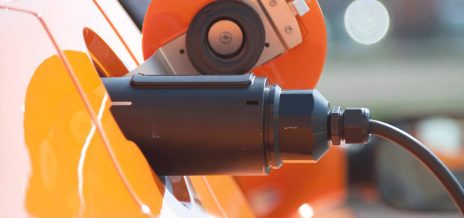
Hosting a Charging Station?
The new Clean Fuel Regulations, SOR/2022-140, (the “Regulations”) aim to displace the use of fossil fuels and promote the use of electric and hydrogen fuel cell vehicles.
Read more
Ambition EST 2030 : a roadmap for propelling Quebec to the forefront of the electric and smart transportation industry by 2030
Propulsion Québec, the cluster for electric and smart transportation, is announcing Ambition EST 2030, a roadmap for the electric and smart transportation (EST) industry developed in partnership with Deloitte.
Read more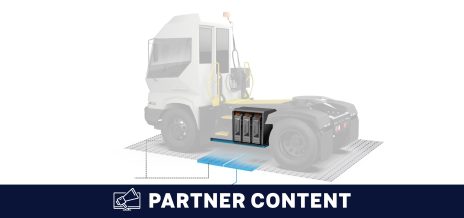
Less batteries, more autonomy: Revolutionizing the electrification of heavy-duty vocational trucks
Effenco recently launched a new, 100% electric solution that is poised to radically transform the vocational trucking sector, one of the most polluting sectors of the transportation industry.
Read more
Québec on its way to homegrown battery industry
Québec is well positioned to lead the way in lithium battery manufacturing and ramp up the transition to electric transportation.
Read more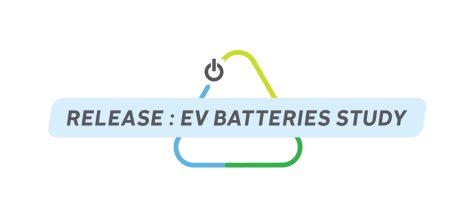
Propulsion Québec releases a new study on extended producer responsibility for end-of-life electric vehicle battery management
Propulsion Québec smart and electric vehicle cluster today released a brand new study entitled Extended Producer Responsibility for Electric Vehicle Lithium-Ion Batteries in Quebec.
Read more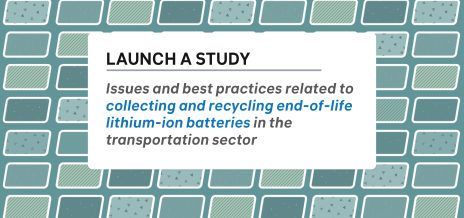
Issues and best practices related to collecting and recycling end-of-life lithium-ion batteries
Propulsion Québec launches a study on the issues and best practices related to collecting and recycling end-of-life lithium-ion batteries in the transportation sector.
Read more